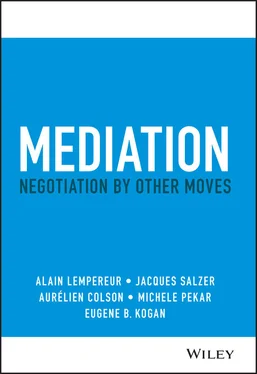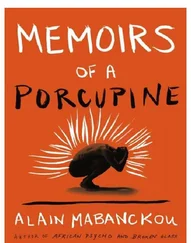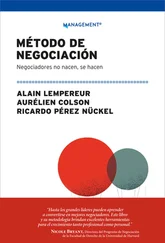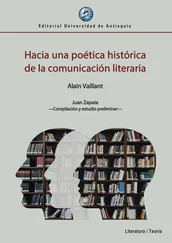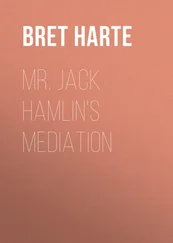Conflict resolution systems are often founded on authority. In private life, parents have the authority over their children and over the rules to address familial conflict. In organizations, the upper level has “formal“ authority – drawing on the official title or position in the hierarchy – to settle conflicts at the lower levels. In society, overall, the law, in distinguishing between what is legal or not, makes each person part of a system of conflict prevention and regulation. If, despite everything, two parties are in conflict about the interpretation of a legal norm, the judge is there to decide with all the authority conferred upon them by the law. In each case above, authorities are entrusted with the role of ending the conflict.
But authority shows its limits in contemporary society, owing to a combination of factors, including the rise of individualism; the erosion of moral, or religious, norms; the decline, renewal, or rejection of traditional authority figures – the father, instructor, professor, priest, police officer, etc.; the growing influence of liberalism and its deregulation; the democratization of societies and decision‐making systems; an increased transparency and questioning of hierarchy in organizations (i.e. “flat organization”); the decline of Fordist business as a bureaucratic organization; the contestation of legitimacies – scholarly, scientific, technical, legal, administrative – and biases – patriarchy, gender, race, ethnicity, sexual orientation – and, in return, the rise of participative mechanisms of consultation, dialogue, and negotiation.
The First Move: A Negotiator's Companion (Lempereur and Colson, ed. by Pekar 2010) summarized the tendency of this vast sociological movement: “impose less and propose more.” In conflict management, whatever the context, the involved parties hardly accept a solution imposed on them by an outside authority. There is, everywhere, a growing desire to stay in control of one's life, plans, and trajectory – including one's conflict and its settlement.
The rise of negotiation as a mode of joint decision‐making aligns with this shift away from unilateral, top‐down diktat. But what happens when negotiation fails and the parties are unable to define an agreement that satisfies both of them? One possibility is to fall back on an authority – a boss or a judge. Another is to invite a third party – neutral, impartial, and benevolent – to reignite negotiations, facilitate the exchanges, and empower the parties to explore the conflict, bring their essential needs to the surface, imagine possible solutions, evaluate them, and finally choose those to which they freely and mutually commit. This is, in a few words, what mediation stands for: it offers a pursuit of negotiation by other moves . It reinforces a trend where the law is first the law of the people (Lempereur 2011a, 2011c).
A mediator is not an authority per se. They do not have the power to make decisions. They do not coerce, choose favorites, and very rarely impose limits. On the contrary, they always seek to empower the parties. They facilitate, encourage, and motivate. Theirs is a strange art: the parties accept their presence at the negotiating table precisely because they have no formal authority over them. This is why, when mediation succeeds, the parties are more likely to recognize the agreement that they themselves produced – with the mediator's support – and discover the strength of this process of third party's facilitated negotiation, and its profound legitimacy.
Faced with conflict and rejecting the presence of an external authority does not necessarily mean that individually each party has full power to shape the outcome. The parties need to work together, and their cooperation constitutes an inescapable variable in the equation: as much as the parties are part of the problem, they are also part of the solution. Each party cannot ignore the other, just as the other cannot ignore them. Each owns a part of the story, likely contributed to what happened, and is therefore asked to feel responsible for overcoming the conflict.
This is why “the other” constitutes a fundamental theme in this book. In fact, putting the other at the heart of the exchange is essential for
each of the parties in conflict, who can develop empathy toward the other, i.e. put themselves in the other's shoes, so that both sides engage back and forth in a double move toward mutual understanding, where (i) each understands the other better and (ii) each is better understood by the other;
the mediator, who, instead of seizing ownership of the conflict, preserves both parties' control of their conflict and its resolution, through reciprocal recognition of the “two others” and hopefully by each other.
The mediator plays an intermediary role between the two “others.” The centrality of the other is evoked in the
past, a time of conflict, ignorance, or condemnation of the other, with different perceptions and opposing visions of “this” radically different other, separation and alienation from the other, creation of negative otherness;
present, a time of mediation, which facilitates a dialogue between the two estranged others, allowing them to analyze the similarities and differences between them in their narratives, in order to foster a mutual recognition of identities and needs, where each “other” might come back in renewed proximity with one another, and where this possible restored link builds some readiness to explore solutions;
future, which may still be uncertain but which can be built together by creating a common ground for a renewed relationship, one where the other is not simply present with me, but where the other sees themselves as having a future with me in it.
Integrating the other happens through deepening understanding, which requires active perceiving, i.e. a methodical use of listening and looking, and probing – which everyone thinks they practice well, but which can often be improved. The mediator's display of skilled understanding of the two parties is often the platform that enables both of them to understand each other.
Everyone can improvise and play the role of a mediator, and some perform it well: between one's brothers and sisters, between one's parents and relatives in a dispute, and between classmates, or friends, or colleagues at work. Chapter 2addresses the question of “informal mediators.”
The fact remains that, except for limited cases, effective mediation is rarely well founded on instinct only . There is no doubt that some people are more gifted at empathy than others. They might be seen as naturals in benevolent listening. However, they may not employ some fundamental tools of inquiry and probing, or restating that the mediator needs to master before running a session. Learning such tools on the job or by trial and error can be a slow process, and, worst of all, sometimes the consequence of avoidable failure. Mediation is therefore a matter of methods : principles and good practices exist, tools are available, techniques are checked, traps are identified – all forming a practical body that everyone can acquire and implement (Lempereur, Salzer, and Colson 2007). As mediation experience grows, such methods need to be tested, refined, and adjusted in an ongoing circle of learning.
Our book integrates both methods and experience. As academics and mediators in the field, including in high‐stress/‐stakes/‐impact environments, we combine knowledge and know‐how, as we have practiced and refined them over decades through a worldwide practice for international organizations, governments, NGOs, and corporations. As a result, the models, tools, and examples this book proposes develop several possible methods for mediation. We hope this book will be
Читать дальше
